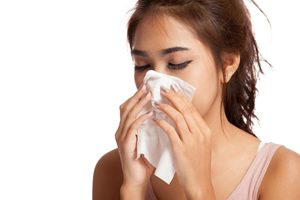
With days quickly warming, many allergy sufferers turn to pollen predictions to understand how badly the spring season will affect them. Unfortunately, allergists have their work cut out for them when it comes to understanding pollen patterns.
"We really can't say what will happen," says Sherry Farzan, MD, an allergist who practices at North Shore-LIJ Health System in Great Neck, N.Y. "Last year, everyone was thinking that the polar vortex would result in a spring pollen vortex. It may have been worse than usual, but it wasn't as bad as we predicted. For this year, only time will tell."
According to a WebMD report, weather has an impact on pollen counts. Spring rain, for example, reduces allergy symptoms because it's more difficult for pollen to be carried on the breeze. And yet, if that rain occurs heavily in the fall or winter — alongside snow — allergy sufferers can expect spring to be a miserable season, since moisture increases pollen production.
The timing of allergy season also depends on the weather, with milder winters leading to an earlier allergy season. While moisture spurs pollen production, it's dry warmth that allows pollen to spread.
Kraig Jacobson, MD, who chairs the American Academy of Allergy, Asthma and Immunology's Aerobiology Committee, told WebMD that pollen season is a guessing game, but that this season should be average.
Whatever the outcome, it is important that individuals who suffer in the spring season should take active steps towards allergy prevention. Try to stay inside on days with high allergy counts, use allergen air purifiers and consider investing in hypoallergenic bedding for the most comfort.









